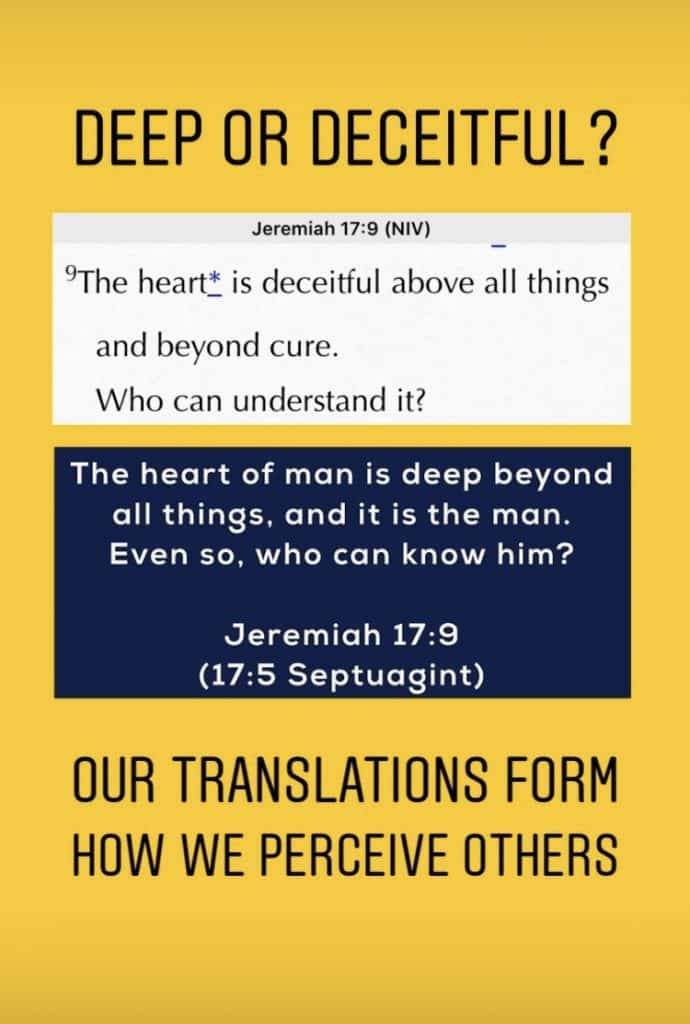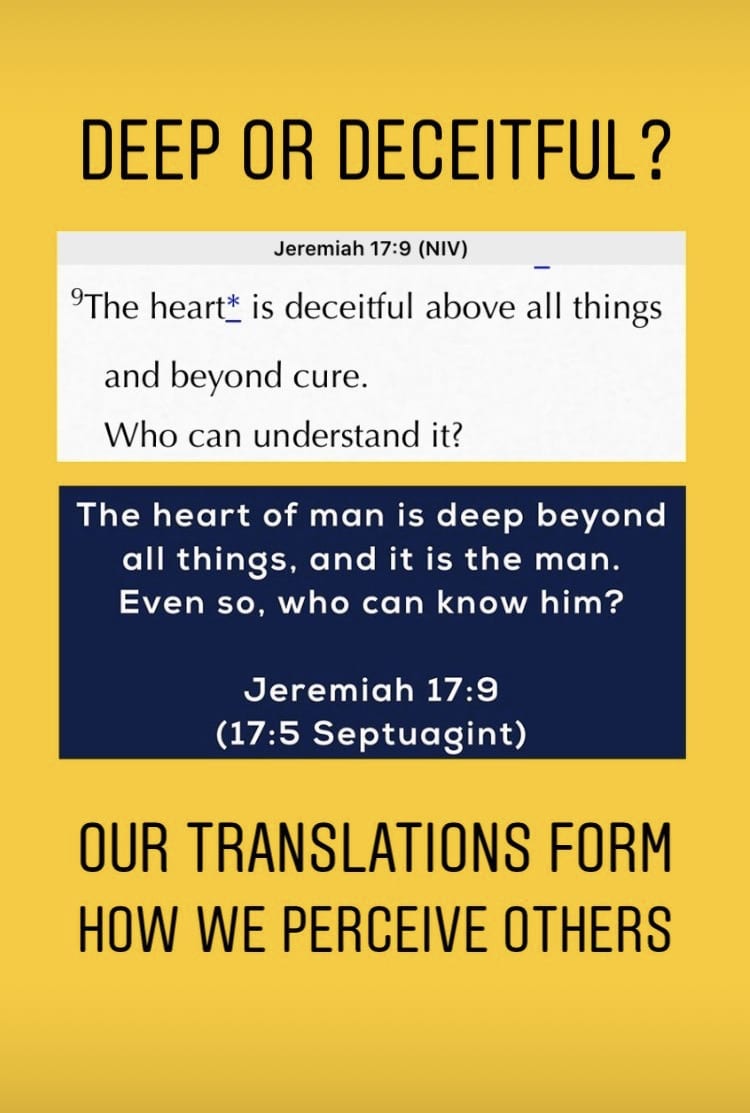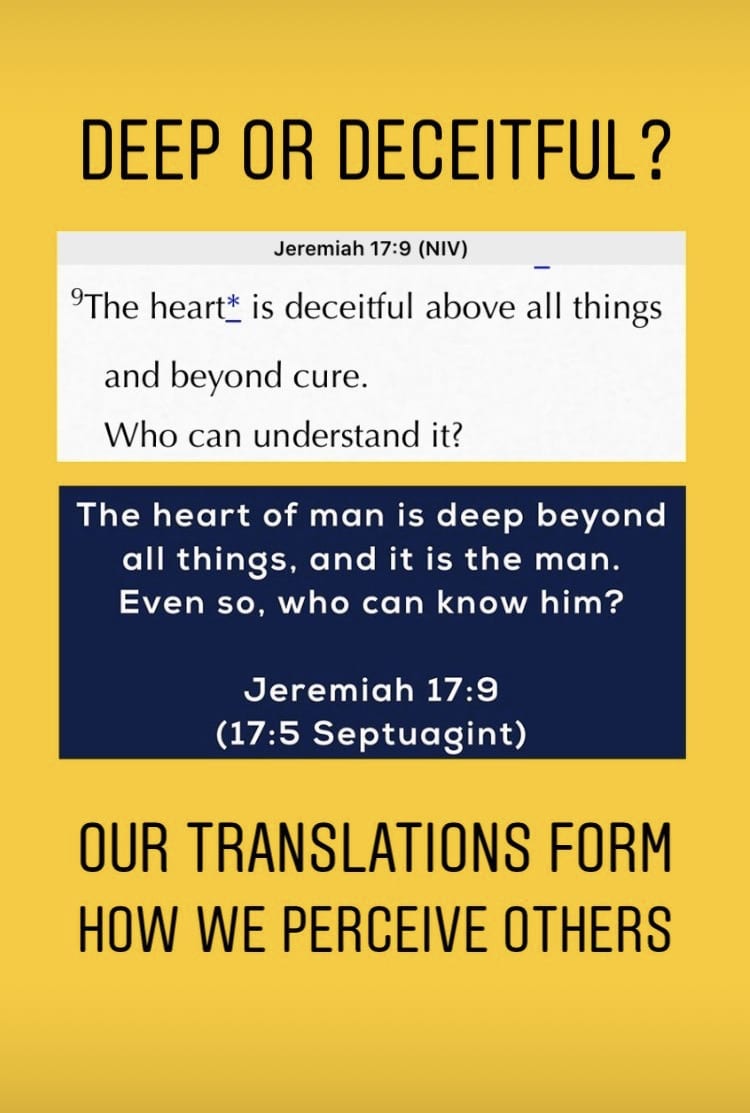Gospel Before Translation (pt. 2/3) – Brad Jersak
Gospel Before Translation: In part 1 of this series, I claimed that the first Christian interpreters established in their hearts the gospel of Jesus Christ before they attempted to translate or interpret the Scriptures. Apart from that gospel, they believed the Bible could not be understood, much less translated, as inspired Scripture. The gospel formed and affected all of their translation work. Sadly, modern translators seem to pretend to be unbiased by their theology (but of course they are).
Our first example came from Isaiah 53:10, where the NIV and KJV depicted God as taking pleasure in crushing the suffering servant (a type of Christ). But the LXX (or Septuagint)–a Greek version of the Hebrew canon, translated before Christ and cited in the NT–used the word “cleansed” instead of crushed, the same word the Gospels use for Jesus’ healing ministry. What a different view of God!

In this second (of three) examples, we will see how our translations can also affect our view of humanity and visa versa. Here we have Jeremiah 17:9, which I memorized as a young Evangelical. Once again, we’ll compare the modern NIV with the ancient LXX.
The NIV perfectly matches the low view of humanity I grew up with–debauched, debased and totally depraved. We came by our “worm theology” honestly, assured even in elementary school that my heart (and everyone else’s) is deceitful, desperately wicked and beyond cure.
You could never really trust it, even if you “prayed the prayer” and Jesus gave you a “new heart.” This view imparted an early sense of cynicism and sowed distrust, with a thousand anecdotes to prove the point. By dehumanizing humanity, we felt we had a better gospel to sell.
But compare this to the LXX. “The heart of man is deep beyond all things, and it IS the man.” The human heart is indeed deep, complex and truly wonderful. At the heart of every person on this planet is a diamond, that however tarnished, is valuable beyond all measure. Who can know such depths? Who can retrieve and restore the diamond of our true selves? The apostle Paul will tell us:
- 10 these are the things God has revealed to us by his Spirit. The Spirit searches all things, even the deep things of God. 11 For who knows a person’s thoughts except their own spirit within them? In the same way no one knows the thoughts of God except the Spirit of God. 12 What we have received is not the spirit of the world, but the Spirit who is from God, so that we may understand what God has freely given us (1 Cor. 2:10-12).
Next time you make eye contact with another human being, look through their eyes to the depths of their heart, to the treasure that is their true self. Leave behind the worm theology that judges their deepest heart as deceitful and desperately wicked. Value them as you would a priceless gem.
In our final instalment, we’ll come back to the nature of God and God’s relationship with “wrath,” looking at various translations of Paul’s words in Romans 5.











 Plain Truth Ministries | Box 300 | Pasadena, CA 91129-0300
Plain Truth Ministries | Box 300 | Pasadena, CA 91129-0300

